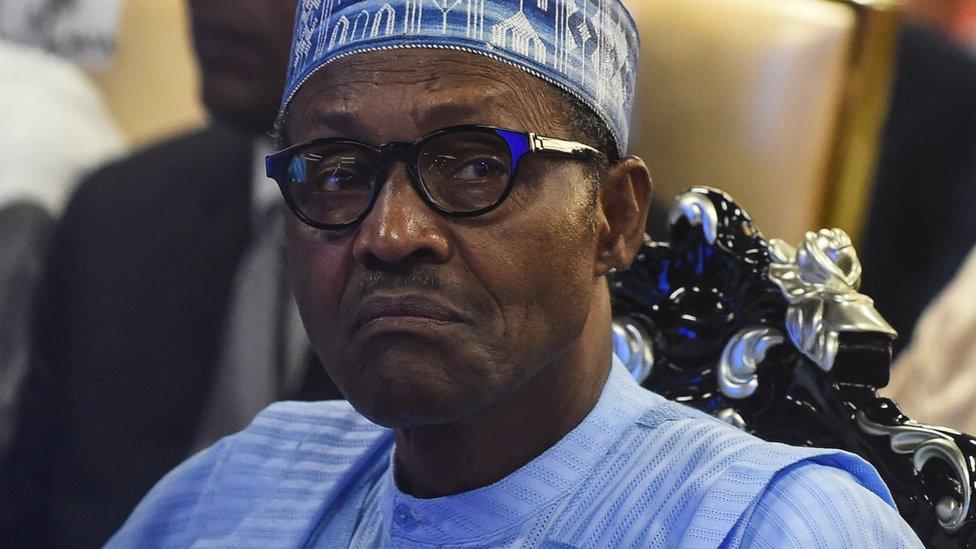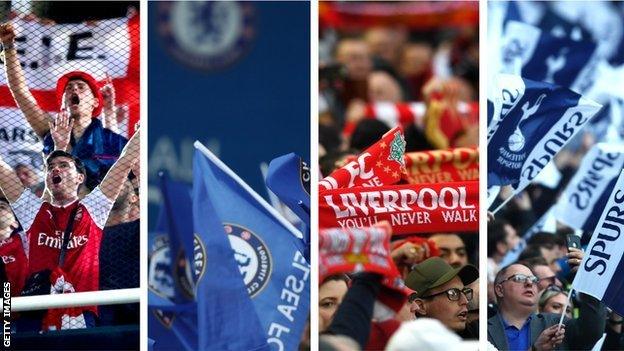Four things to expect from the week ahead
- Published
It's Monday, it's a new week, and while we won't pretend to know everything that's going to happen over the next seven days, we have some sense of what's coming up.
Here's your briefing on some of the most important and interesting stories happening in the week ahead.
1) The Kurz of the secret sting
Austria's Chancellor Sebastian Kurz is facing a no-confidence vote in parliament.
It comes days after a secret video sparked a political scandal that led to the collapse of his right-wing coalition.
The no-confidence motion on Monday calls for a technocratic government to replace Mr Kurz, 32, until elections - probably in September.
Mr Kurz effectively ended the coalition last week by calling for fresh elections and announcing the dismissal of Interior Minister Herbert Kickl, a member of the Freedom Party (FPÖ).
The move prompted other FPÖ ministers to resign in solidarity.
Mr Kickl was one of two far-right figures caught up in the secret video, along with FPÖ party leader Heinz-Christian Strache, who has resigned as vice-chancellor.
The video, from, 2017, was recorded in a villa in Ibiza
In the video, which was recorded in a villa on the Spanish island Ibiza in 2017, Mr Strache can be seen relaxing and drinking for hours while appearing to offer government contracts to a woman in exchange for electoral support.
To survive Monday's vote, Mr Kurz will need the support of the FPÖ or the opposition Social Democratic Party (SPÖ).
2) Assange in court facing extradition
Wikileaks co-founder Julian Assange makes another appearance at Westminster Magistrates' Court via video link on Thursday following his recent removal from the Ecuadorian embassy in London.
The UK will need to decide whether to extradite him to the US in response to allegations that he conspired with former US intelligence analyst Chelsea Manning to download classified databases.
Last week, the US justice department filed 17 new charges against Assange, external, accusing the 47-year-old of violating the US espionage act.
It promises to be a long battle, with Australian-born Assange facing decades in a US prison if extradited and convicted.
Julian Assange being dragged from the Ecuadorean embassy in London
Assange took refuge in the Ecuadorian embassy back in August 2012 after being released on bail by British police pending extradition to Sweden in relation to a probe into alleged rape.
Swedish authorities dropped the investigation in 2017, but the police in the UK still sought his arrest for breach of bail. He was arrested on 11 April after Ecuador abruptly withdrew his asylum, and later jailed for 50 weeks.
Sweden reopened its investigation earlier this month and is expected to hold a detention hearing for Assange on 3 June.
3) Nigeria's presidential inauguration
The swearing-in ceremony for Nigeria's President Muhammadu Buhari takes place on Wednesday following his re-election in February.
Mr Buhari, who was first elected president in 2015, faces many challenges in the role, such as finding jobs for the millions of unemployed young people in Africa's most populous nation, quelling various insurgencies and militia violence, and tackling a rise in kidnappings across the country.

A former soldier, Mr Buhari led a military regime in the 1980s
Meanwhile the runner-up in Nigeria's presidential election, Atiku Abubakar of the opposition People's Democratic Party (PDP), has disputed the result, calling it a "sham election" and filing a formal appeal at Nigeria's election tribunal.
Last week, the tribunal rejected a proposed injunction to stop Wednesday's inauguration.
Mr Buhari's swearing-in ceremony will be followed by a state banquet in the evening.
4) Full English football finals
The Champions League and Europa League finals will be contested by four English teams for the first time in history.
Chelsea and Arsenal play in the Europa League final in Baku, Azerbaijan, on Wednesday, while Spurs and Liverpool contest European football's top prize in the Champions League final in Madrid on Saturday.

Arsenal and Chelsea meet in the Europa League final on 29 May while Liverpool and Spurs fight for the Champions League crown on 1 June
For the Chelsea and Arsenal supporters lucky enough to possess tickets, they face travelling 2,467 miles to watch the game in a city further east than Riyadh in Saudi Arabia or Baghdad in Iraq, and closer to Mumbai in India than it is to London.
Uefa's decision to stage the event in Azerbaijan caused a stir with fans struggling to secure flights and accommodation. The clubs also said they were disappointed that only 6,600 tickets were made available to each of their fans for a stadium with a capacity of 60,000.
Meanwhile, Liverpool and Spurs have been allocated around 16,000 tickets each for the match at Atletico Madrid's stadium, which holds around 68,000.